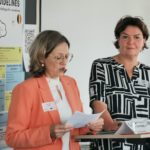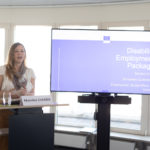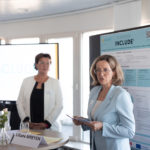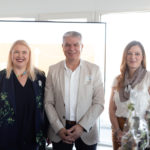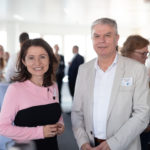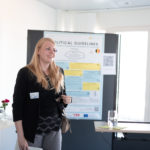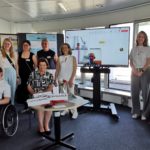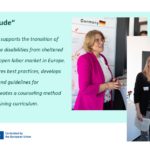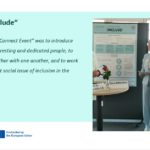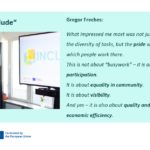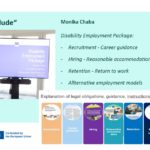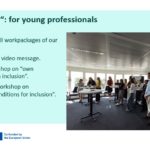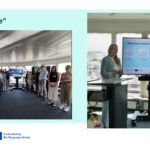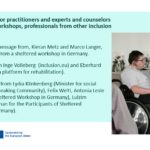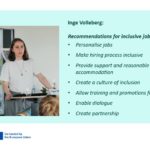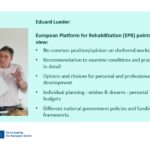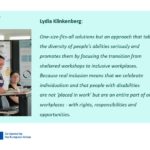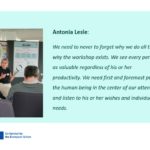International Multiplier Event
Bridging the Gap
Include³ Erasmus+ Project Paves the Way for Inclusive Employment
The international multiplier event of the Include³ project brought together a vibrant community of inclusion specialists, decision-makers, higher education representatives, and civil society members.
The collective goal? To empower individuals with cognitive disabilities for the transition from sheltered employment into the regular labor market.
A Collaborative Effort for Sustainable Inclusion
Held on June 11th and 12th in Brussels, with hybrid participation options, the event featured three key sessions:
“focus include” – Creative Workshop (hybrid format): participants explored the framework conditions necessary for a successful transition from sheltered workshops to the general labor market. This included an in-depth look at the innovative Include³ Method and the core principles, prerequisites, and supportive counseling crucial for this journey.
Driving Change: The Minds Behind Include³
This impactful event was skillfully organized by a dedicated team of experts:
- Prof. Dr. Silvia Keller (HdBA, D-Mannheim), an inclusion expert and co-developer of the Include³ method.
- Prof. Dr. Yasemin Körtek (HdBA, D-Mannheim), a social law expert specializing in participation law.
- Jenny Schulz (HdBA, D-Mannheim), Project Assistant and Lecturer at the HdBA.
- Liliane Mreyen (VHS Bildungsinstitut, B-Eupen), managing director of an adult education institution.
- Ursula I. Meyer (VHS Bildungsinstitut, B-Eupen), author and researcher of an adult education institution.
The event was also a successful collaboration with the European Representation of the German Federal Employment Agency in Brussels, led by Janice Schmidt-Altmeyer, Head of European Representation.
Acknowledging Key Supporters
We extend our sincere gratitude to the distinguished guests who provided clear and committed messages on the importance of inclusive employment:
Gregor Freches, Minister for Culture, Sport, Tourism and Media.
“What impressed me most was not just the diversity of tasks, but the pride with which people work there.
This is not about “busywork” – it is about participation.
It is about equality in community.
It is about visibility.
And yes – it is also about quality and economic efficiency.”
Lydia Klinkenberg, Minister for Family, Social Affairs, Housing and Health of the German-speaking Community of Belgium.
„One-size-fits-all solutions but an approach that takes the diversity of people’s abilities seriously and promotes them by focusing the transition from sheltered workshops to inclusive workplaces. Because real inclusion means that we celebrate individualism and that people with disabilities are not ‘placed in work’ but are an entire part of our workplaces – with rights, responsibilities and opportunities.”
Monika Chaba, staff member of the European Commission’s Directorate-General for Employment, Social Affairs and Inclusion.
The Disability Employment Package aims to improve the labor market outcomes for people with disabilities across the EU, recognizing that currently, only about half of working-age people with disabilities are employed. It seeks to support Member States in ensuring social inclusion and economic autonomy through employment, aligning with Article 27 of the UN Convention on the Rights of Persons with Disabilities.
Insights for the Future
The events underscored a powerful truth: “Inclusion succeeds where openness, cooperation and practical approaches come together.”
Discussions also highlighted the crucial role of the EU’s comprehensive Disability Employment Package and the importance of structured transitions for implementing Article 27 of the UN Convention on the Rights of Persons with Disabilities. As one participant emphasized, “We should never ignore this article.”
The Include³ project continues to champion a future where everyone has the opportunity to thrive in the regular labor market. Stay tuned for more updates on our journey towards a truly inclusive society!


